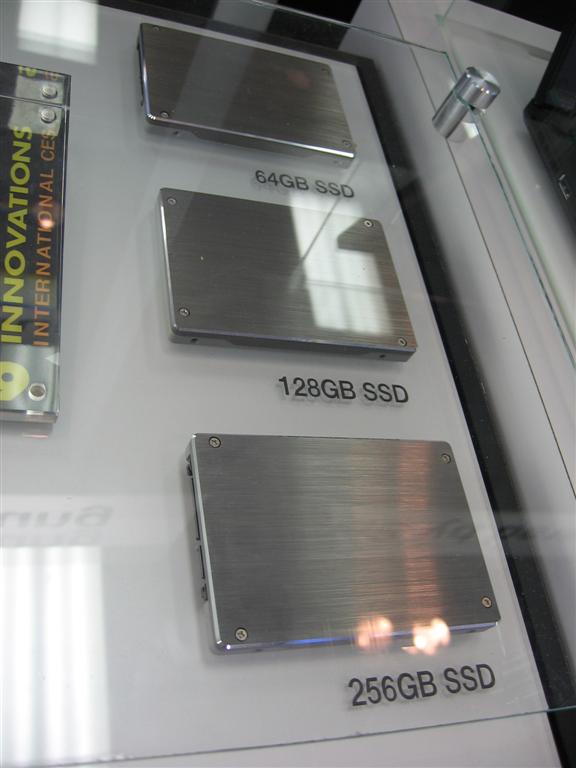CES 2009: SSD-only business notebooks the 'new wave' of 2009 [day 4]


To sum it up: business notebooks will soon be all SSD. Or, to quote Steve Weinger, SC's senior marketing manager: "SSD-only is the new wave of 2009."
Why? According to them, business users shouldn't necessarily need to store music and movies and the like, so they won't really need enormous capacity. (Technically, they should be saving things to the server.)
To show the differences in the performance between the two, the company had a setup running two Windows Vista machines through various paces -- closing and opening Windows, booting up and shutting down, and so forth. It's pretty clear which machine won:
Furthermore, the company announced its SS805 100GB SSD for use in servers earlier this week, aimed at being an alternative to a traditional 15,000 RPM HDD. The new SSD can process input-output per second (IOPS) 10X faster than 15,000 RPM SAS HDDs and has a random write speed of 6,000. It can process 100X the number of IOPS per watt as a 15,000 RPM 2.5-inch SAS HDD, which means a lot more server muscle-flexing done for a lot less power, time and money.
Succinctly, it's for speed demons-- enough so that it's designed to replace multiple HDDs.
More specs on the 100GB SSD: 8-channel controller, improved NAND flash and special drive firmware, reads data sequentially at 230 MB/s and writes sequentially at 180 MB/s, consumes 1.9 watts in active mode (versus 8 to 15 for 15K RPM HDDs) and 0.6 watts in idle mode (versus 1 to 2 watts).